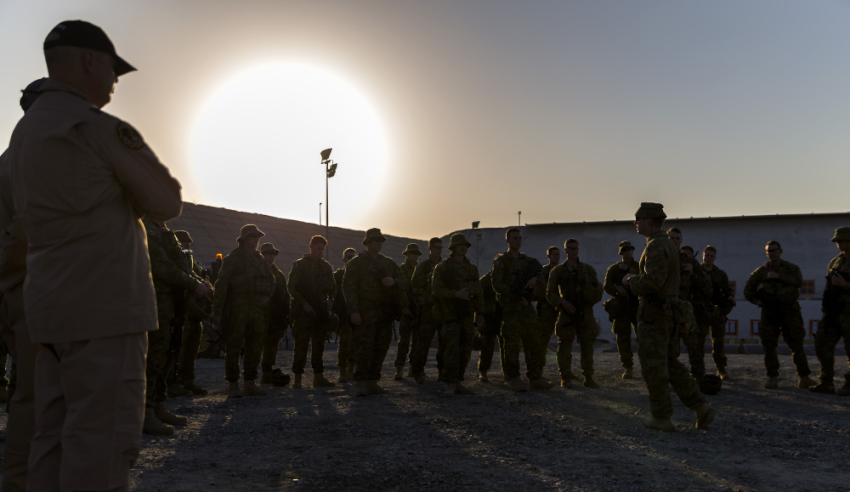A global consulting and advisory company has compiled a list of the key issues and concerns of Australian business leaders, but defence and security has failed to make the top 10.
To continue reading the rest of this article, please log in.
Create free account to get unlimited news articles and more!
KPMG's report, titled Keeping us up at night: The big issues facing business leaders in 2018, was created through detailed qualitative data collected from nearly 200 business leaders in Australia who were asked to identify their key issues of concern.
The top 10 ranking consisted of:
1. Digital and innovation
2. Cost competitiveness
3. Energy
4. Regulation
5. Government efficiencies
6. Public trust
7. Infrastructure
8. Fiscal sustainability
9. Big data
10. Health
While defence and security did not make the top 10 list, KPMG's report said it was one of the key areas mentioned by business leaders, but still fell behind climate change, education, tax reform, social cohesion and affordable housing.
Despite defence being snubbed from the top 10, many of the areas that did make the list, such as digital and innovation, cost competitiveness, government efficiencies, fiscal sustainability, and big data, are of concern to Defence and the defence industry.
Cost competitiveness in Australia's manufacturing sector has been an ongoing concern for the defence industry, with industry bodies such as the Advanced Manufacturing Growth Centre (AMGC) previously calling for a new and innovative way of thinking on the issue.
"If we as a country would like to be globally competitive ... innovation is necessary ... we need to get more companies competing on the world stage on value, not on cost," said AMGC's managing director, Jens Goennemann.
"Australia is not a country which is cost competitive. Competing on cost will not get us anywhere when we want to sustain the lifestyle we have ... in our [AMGC] Sector Competitiveness Plan, [we] asked global purchasing managers, "Why do you bother coming to Australia and buy here?" And nobody, nobody from the 50 we asked said "We are here 'cause you are cost competitive." No, we're not. But they came to Australia because we either had something to offer in technology leadership, or a specific service or combination of both. Sixty per cent mentioned that as their first answer. So, we need to compete on value. We need to be better than the others, not cheaper."
Coming in at number five and eight, respectively, are government efficiency and fiscal sustainability. Both issues have long been under the microscope in Defence, and even more so now since the release of the 2016 Defence White Paper and the Turnbull government's commitment to reaching a 2 per cent spend of gross domestic profit on Defence.
At number nine in the ranking is big data, which is described by the Australian Strategic Policy Institute's (ASPI) Michael Chi as the "catch-call term" that refers to a collection of concepts, technologies and methodologies that constitutes a novel approach to collecting, managing and analysing data, and is one area that Defence primes and SMEs are looking to capitalise on.
Likely applications of big data in the national security and defence domain include the integration of shared information; entity recognition and tracking; predictive analytics; the generation of novel hypotheses and knowledge; and preventative and predictive national security and governance.

 Login
Login







